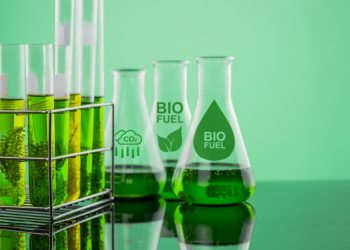Cepsa has added a diesel-electric hybrid barge to its fleet of marine fuel supply vessels. The vessel, which is already operating in the Bay of Algeciras, is the first of its kind to supply fuels to ships in Europe.
The hybrid barge operates with a 30% reduction in fuel consumption and a reduction of more than 35% in greenhouse gas emissions compared to a conventional barge. The barge would avoid the emission of more than 2000 tons of CO2 per year. While at berth, the hybrid barge emits zero carbon, helping to reduce emissions from the ports in which it operates.
It was built at Astilleros de Murueta in Erandio (Vizcaya, Spain) and is owned by Spanish shipowner Mureloil.
In addition to conventional fuels, the hybrid barge can also supply advanced biofuels. As announced in October 2022, Cepsa has successfully tested the supply of second-generation biofuels to its vessels.
These biofuels can be used in ships without modification and can reduce greenhouse gas emissions in the entire life cycle by up to 90% compared to traditional fossil fuels.
The vessel is also equipped with four generators for electric propulsion, in addition to a battery system for auxiliary services in port. It also has a specific and optimized design that makes it more maneuverable and efficient.
The cargo capacity of 7800 m3, distributed in 12 tanks, will reduce the vessel’s rotation, which translates into lower consumption. The vessel also incorporates state-of-the-art engines, which will use Cepsa lubricants, and, as a new feature, all cargo lines will be equipped with Mass Flow Meters (MFM) technology, which ensures accurate and reliable measurement of the fuel loaded.
As the shipping industry needs to take rapid action to meet the FuelEU Maritime emission reduction targets, at Cepsa we continue to try and lead by example and push industries to transform faster for a sustainable future
Samir Fernández, Cepsa’s director of Bunker, said.






























































